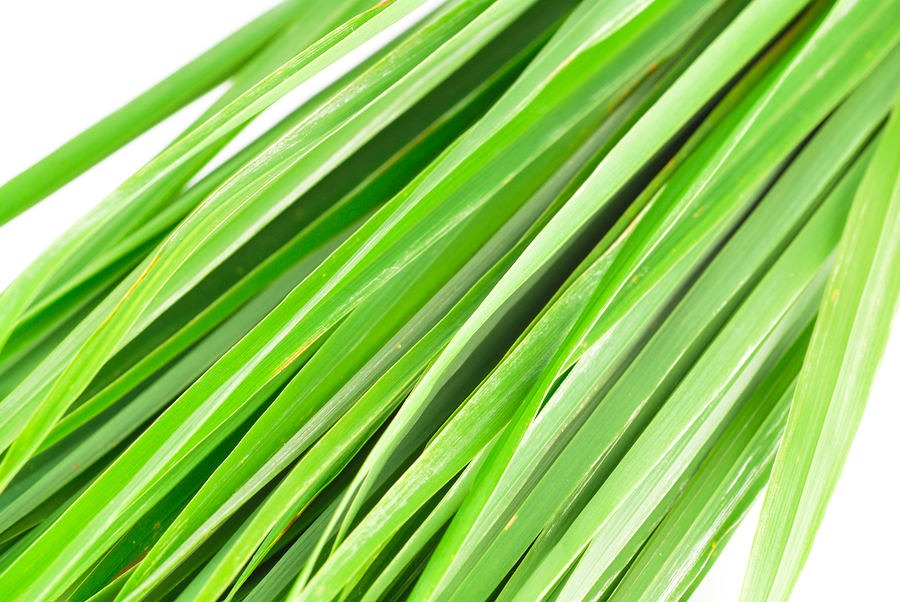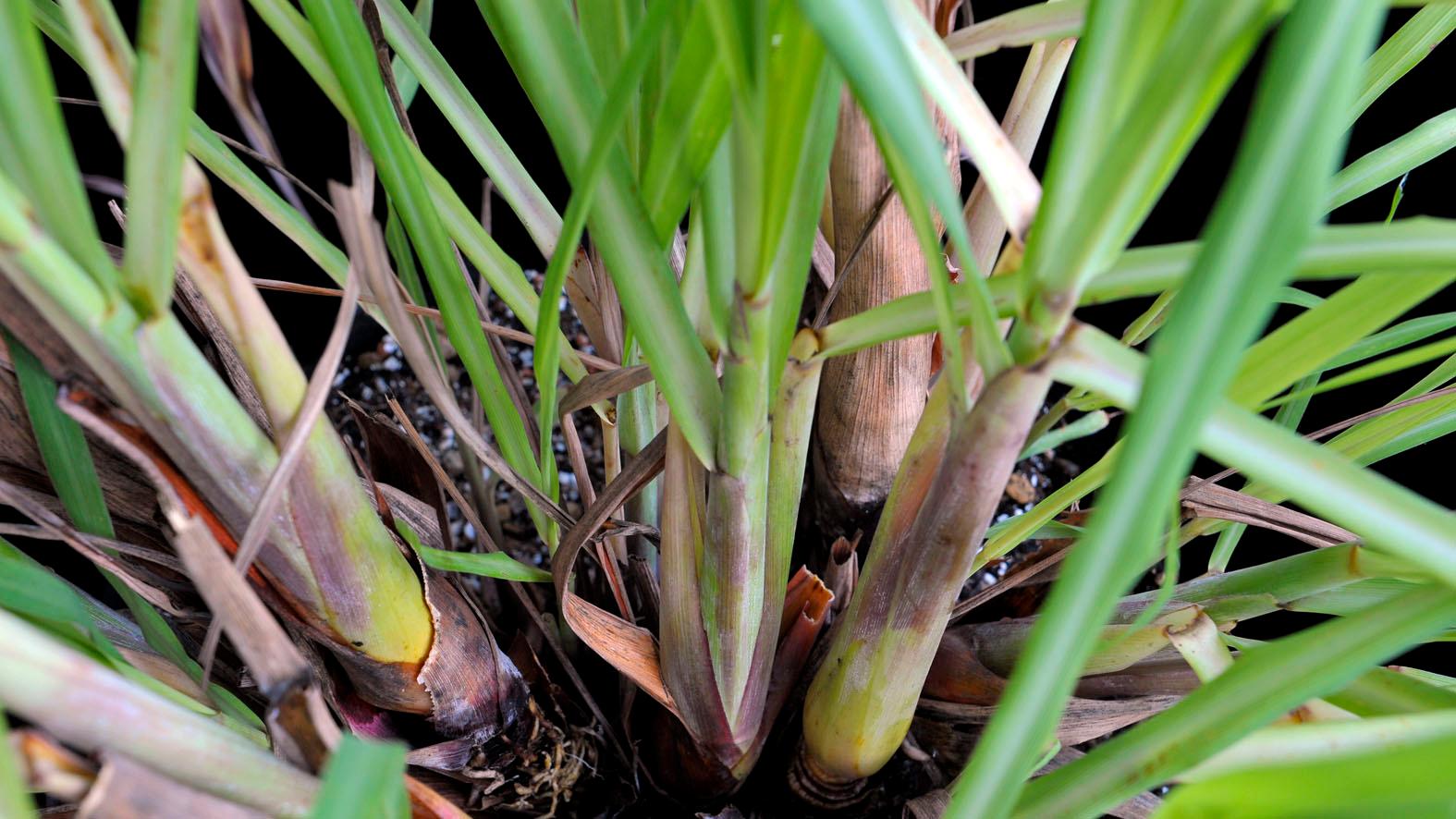Though often mistaken for a weed, the fever grass or or lemon grass (Cymbopogon citratus) plant is far from it. It is an herb which belongs to the grass family of Poaceae. It is among some of the most diverse, yet underrated herbs known to mankind. It is utilized for its distinct lemon flavor and citrusy aroma. The plant’s stalks are a common ingredient in Asian cooking, but and is also use to make tea to cure fever here in Guyana.
The plant has long leaves that are similar to those of seagrasses. While an estimated 55 species of fever grass exist, only the East Indian and West Indian varieties are suitable for use in cooking. Fever grass, also called citronella, is being used as a bug repellent. Fever grass essential oil is used in aromatherapy to freshen the air, reduce stress, and uplift the mood.
Where Did Fever/Lemon Grass Come From?
Its origin is that of India and its neighboring countries. But today is found growing almost anywhere.
Description Of Fever Grass

Lemon Grass | http://shop.elizabethvanburen.com/lemongrass-cymbopogon-citratus/
The grass grows in dense clumps and has several stiff stems and slender blade-like leaves which droop towards the tips. The leaves are blue-green in color, turning red in the fall and emit a strong lemon fragrance when damaged. Fever grass produces large compound flowers on spikes when grown in the tropics, but rarely flowers when grown in more Northern latitudes. They can reach a height of 1.8 m (6 ft) and will grow for several years, typically its economical lifespan is 4 years.
Fever Grass Nutrition Facts
It is a source of essential vitamins and minerals such as vitamin A, B-vitamins, folate, and vitamin C, potassium, magnesium, phosphorous, manganese, zinc, and iron, which are required for the healthy body function.
7 Amazing Health Benefits Of Fever Grass/Lemon Grass
- Relieving anxiety – Many people find sipping hot tea to be relaxing, but fever grass tea may offer further anxiety-reducing properties.
- Lowering cholesterol – According to an article in the Journal of Advanced Pharmaceutical Technology & Research, consuming fever grass extracts appears to lower cholesterol in animals. The study notes that the reaction is dose-dependent. This means that larger quantities of fever grass might lower cholesterol further.
- Preventing infection – According to the Memorial Sloan Kettering Cancer Center, study results suggest that fever grass may have some infection-preventing capabilities. For example, the herb seems to reduce the incidence of thrush, a fungal infection that commonly affects people with weakened immune systems, such as those with HIV.
- Boosting oral health – In many countries where the fever grass plant is native to the area, people will take its stalks and chew on them as a way to improve dental health and keep the mouth feeling clean. The Food Chemistry journal published a study confirming these findings. The authors looked at 12 herbs and found that fever grass herbal extracts were one of the most potent inhibitors of bacterial growth in lab samples. They used bacteria that can cause cavities in the mouth, including Streptococcus sanguinis.
- Relieving pain – According to one study, fever grass may be able to block pain. This means that drinking its tea could potentially help to prevent a person from sensing pain.
- Boosting red blood cell levels – The results of a 2015 study suggest that drinking fever grass tea infusions daily for 30 days can increase hemoglobin concentration, packed cell volume, and red blood cell count in the body. The researchers took blood tests from 105 human subjects at the start, and then at 10 and 30 days into the study. They concluded that drinking fever grass tea boosts the formation of red blood cells.
- Relieving bloating – Drinking fever grass tea can have diuretic effects, which means that it stimulates the kidneys to release more urine than usual. According to a small-scale study in the Journal of Renal Nutrition, drinking fever grass tea increases urine output more than other beverages. This diuretic effect on the body can be beneficial in cases where water retention leads to bloating. This is a common symptom of premenstrual syndrome (PMS).
Traditional Uses Of Fever Grass/Lemon Grass
- Leaves and the essential oil are used in traditional medicine to relieve spasms and increase perspiration.
- It is used to treat digestive ailments, arthritis pains, and various skin conditions.
- Essential oil obtained from the plant is an effective anti fungal and antibacterial.
- Plant is used principally as a tea in the treatment of digestive problems, where it relaxes the muscles of the stomach and gut, relieving cramping pains and flatulence.
- It is mainly useful for children, for whom it is also used to treat minor feverish illnesses.
- Externally, especially in the form of the extracted essential oil, the plant is a very effective treatment for a range of conditions including athlete’s foot, ringworm, lice and scabies.
- It is also applied to ease the pain of arthritic joints.
- Fever grass is used in Chinese medicine to treat a variety of ailments including eczema, colds, common , stomach ache, abdominal pain and rheumatic pain.
- It is used in treating Staph Infections and combating Skin Infections.
- It is an effective wound wash.
- It possesses antibacterial and antimicrobial properties and helps to controls the problem of excessive sweating.
- It kills the microorganisms which cause body odor.
- It reduces the LDL cholesterol and keeps the level of triglycerides under control.
- Fever grass encourages the smooth flow of blood through the arteries and blocks the buildup of lipids in the blood vessels.
- Antioxidants present in fever grass prevent free radical damage and lower the risk of Cancer.
- It is good herbal remedy in treating Gastrointestinal Disorders. It improves the bowel functions and stimulates digestion. It destroys the bad bacteria and parasites in the digestive tract.
- It strengthens the skin tissues and reduces irritation and cures the problem of Acne.
7 Little Known Facts About Fever Grass
- Beekeepers sometimes use fever grass oil in swarm traps to attract swarms.
- Fever grass oil has been verified for its repellency against stable flies, which bite domestic animals.
- Essential oil can also be used in perfumery and making cosmetics and soaps.
- A row of fever grass plants can be used as a divider in the garden.
- Fever grass is useful for soil improvement and erosion control.
- Fever grass is used for the manufacture of tea bags in Jamaica.
- Essential oils of fever grass are common ingredients of massage oils and candles that are used in aromatherapy.
Side Effects:
- dizziness
- increased hunger
- dry mouth
- increased urination
- tiredness
About Fever Grass
Fever grass is a plant that is found growing almost anywhere around the world. Here in Guyana, it is use to make tea. In manufacturing, fever grass is used as a fragrance in deodorants, soaps, and cosmetics.
Article References:
- https://www.medicalnewstoday.com/articles/321969.php
- https://www.healthline.com/health/food-nutrition/lemongrass-tea#side-effects-and-risks
- https://plantvillage.psu.edu/topics/lemon-grass/infos
- https://www.organicfacts.net/health-benefits/herbs-and-spices/health-benefits-of-lemongrass.html
Discover more from Things Guyana
Subscribe to get the latest posts sent to your email.







